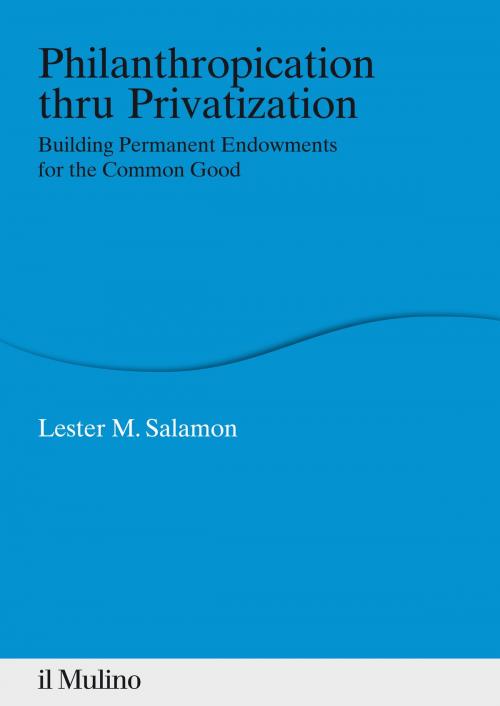Philanthropication thru Privatization
Building Permanent Endowments for the Common Good
Business & Finance, Economics, Public Finance| Author: | Lester M., Salamon | ISBN: | 9788815322241 |
| Publisher: | Società editrice il Mulino, Spa | Publication: | October 2, 2014 |
| Imprint: | Società editrice il Mulino | Language: | Italian |
| Author: | Lester M., Salamon |
| ISBN: | 9788815322241 |
| Publisher: | Società editrice il Mulino, Spa |
| Publication: | October 2, 2014 |
| Imprint: | Società editrice il Mulino |
| Language: | Italian |
With the resources and capabilities of governments barely growing or in decline around the world, yet the problems of poverty, ill-health and environmental degradation ballooning daily, it is increasingly clear that new efforts, and new financial resources, are urgently needed to address the world’s pressing social, economic, and environmental challenges. One promising solution to this dilemma is to channel all or a portion of the proceeds of privatization transactions under way or in prospect in countries around the world into charitable foundations, a process we are calling "Philanthropication thru Privatization", or PtP. By placing permanent assets in private charitable institutions dedicated to improving the quality of life of citizens, particularly citizens most directly affected by privatization, PtP can reduce citizen opposition to legitimate privatization transactions and thereby achieve "win-win" outcomes for citizens, governments, and investors alike.
With the resources and capabilities of governments barely growing or in decline around the world, yet the problems of poverty, ill-health and environmental degradation ballooning daily, it is increasingly clear that new efforts, and new financial resources, are urgently needed to address the world’s pressing social, economic, and environmental challenges. One promising solution to this dilemma is to channel all or a portion of the proceeds of privatization transactions under way or in prospect in countries around the world into charitable foundations, a process we are calling "Philanthropication thru Privatization", or PtP. By placing permanent assets in private charitable institutions dedicated to improving the quality of life of citizens, particularly citizens most directly affected by privatization, PtP can reduce citizen opposition to legitimate privatization transactions and thereby achieve "win-win" outcomes for citizens, governments, and investors alike.















